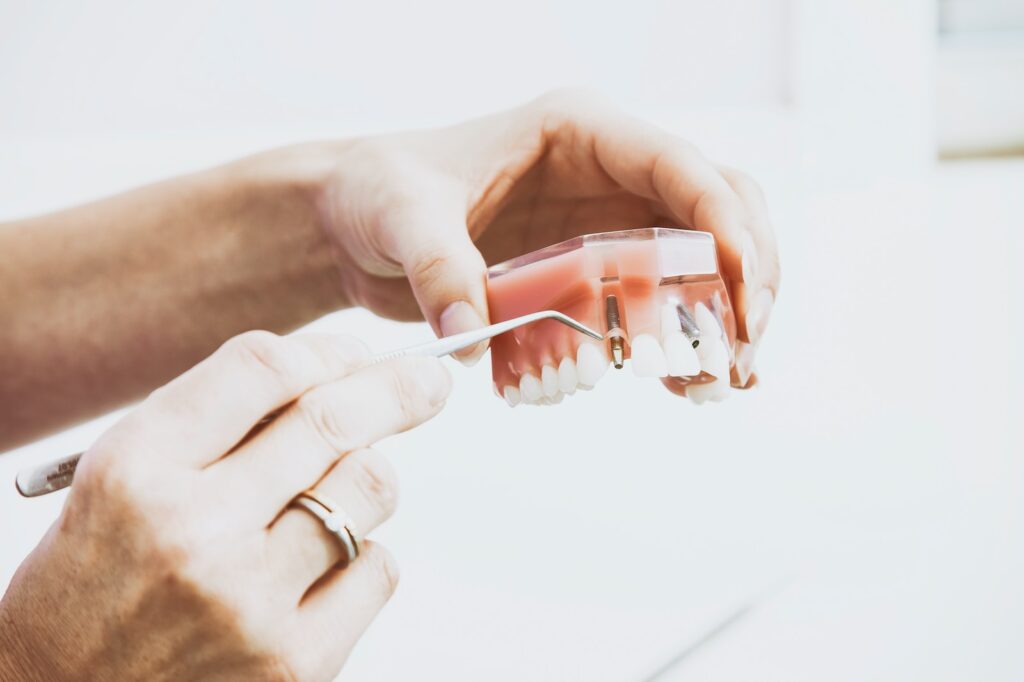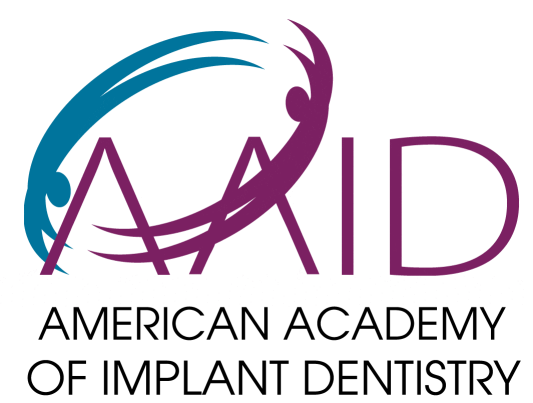Invested in dental implants in Leesburg, Ashburn, Sterling, or Lansdowne? Maximize your investment with expert maintenance care from Lansdowne Family Dental. Unlike dentures or bridges, dental implants fuse permanently with your jawbone and can last decades with proper care. Our implant specialists provide comprehensive aftercare guidance including daily hygiene routines, professional cleaning schedules, and warning signs to monitor. Learn the essential steps for successful long-term implant maintenance and ensure your smile investment pays dividends for years to come.

Why Dental Implant Maintenance Matters
Dental implants have a high success rate, with 95% of implant restorations lasting 10-15 years or longer. However, implants can fail over time without proper care. Reasons for implant failure include:
- Peri-implantitis: Inflammation around the implant that can lead to bone loss. Caused by plaque buildup.
- Loosening: An implant can loosen if the bone fails to fuse properly or shrinks over time.
- Damage: Porcelain implant crowns can chip or fracture. The implant itself can also be damaged by grinding/clenching.
With regular maintenance and professional intervention when needed, many of these complications can be prevented. It’s essential to follow your dentist’s recommendations to protect your investment and oral health.
Recommended Implant Maintenance Schedule
We recommend the following implant maintenance schedule to our patients:
- Professional cleanings every 6 months: Regular prophylactic cleanings allow us to monitor your implants and thoroughly clean areas you can’t reach at home.
- Annual dental exams: A comprehensive exam will check for issues like loose implants, bone loss, cracks in porcelain crowns, etc. X-rays may be taken to compare bone levels over time.
- Prompt treatment as needed: If we detect any problems at your checkup, we can intervene right away before major complications develop.
Some signs and symptoms that may prompt a dental visit before your next scheduled maintenance include:
- Pain, swelling, or discomfort around an implant
- Changes in the way an implant crown fits
- Chipped, cracked, or damaged implant crown
- Mobility in an implant, or a loose crown
- Changes in your bite
- Red, inflamed, or bleeding gums around an implant
Key Aspects of Implant Maintenance
Professional cleanings and exams allow us to perform all aspects of meticulous implant care, including:
Careful plaque removal
Plaque buildup around implants can lead to peri-implantitis. We use specialized tools to thoroughly clean implant surfaces and remove bacteria.
Checking for mobility
We will check that each implant feels firmly fixed in place, and has not loosened over time. Even slightly mobile implants need to be evaluated.
Examining bone levels
X-rays and bone sounding allow us to monitor bone levels around your implant. Bone loss can indicate a problem.
Assessing implants and restorations
We’ll examine the implant and crown for cracks, fractures, wear, damage or decay. Minor issues can be addressed before they turn into major problems.
Evaluating Soft Tissue Health
We’ll check for healthy pink gums with no swelling, redness or bleeding – signs of inflammation or infection.
Adjusting occlusion
If your bite has shifted, we can adjust the way your teeth make contact to prevent damage from excessive biting forces.
Providing at-home care recommendations
We’ll ensure you’re effectively removing plaque around implants each day and remind you of proper home care techniques.
Optimizing Your At-Home Implant Care
While professional maintenance is crucial, how you care for your implants at home daily also has a big impact on their longevity. Be sure you’re doing the following:
- Brushing: Gently brush around the implant and crown 2x per day, angling the brush beneath the gumline. Use a soft-bristled toothbrush and fluoride toothpaste.
- Flossing: Carefully floss at least once daily to remove plaque from between implant crowns or under bridges. Use super floss or threaders if needed.
- Antiseptic rinses: Swish with an antiseptic mouth rinse like Peridex once or twice daily to reduce bacteria.
- Avoid damaging habits: Don’t chew hard foods like ice or hard candy, which can crack porcelain. Stop grinding and clenching to prevent excessive force on implants. If needed, we can fit you with a bite guard.
- Keeping up with routine dental visits: Be diligent about your professional cleanings every 6 months and exams every year. Report any concerning symptoms right away.
Following these simple guidelines provides the foundation for implant success. Be sure to ask us if you have any questions about caring for your implants at home!
Why Lansdowne Family Dental is the Right Choice for Your Implant Needs
When it comes time to get dental implants, you want an experienced implant dentist you can trust. Here at Lansdowne Family Dental, implant dentistry is one of our specialties. You can count on us for:
- Expert implant placement: Our dentists have placed thousands of implants, with excellent success rates. We use advanced technology for optimal implant positioning.
- Careful restoration for natural aesthetics: We take great pride in creating beautiful, realistic crowns and bridges on your implants.
- PrecisionAttachmentSM: Our proprietary technique creates a remarkably secure fit between implant and restoration.
- Conscientious maintenance care: We follow up with you for the long haul to ensure your implants stay in ideal condition.
- Gentle, personalized care: We combine technical excellence with a relaxed, friendly office environment.
Your implants represent an important investment in your health and smile. Turn to our office for specialized care before, during, and after your implant treatment.
We are committed to providing meticulous implant maintenance to help them last a lifetime. Please contact us to learn more or schedule your next maintenance visit!






